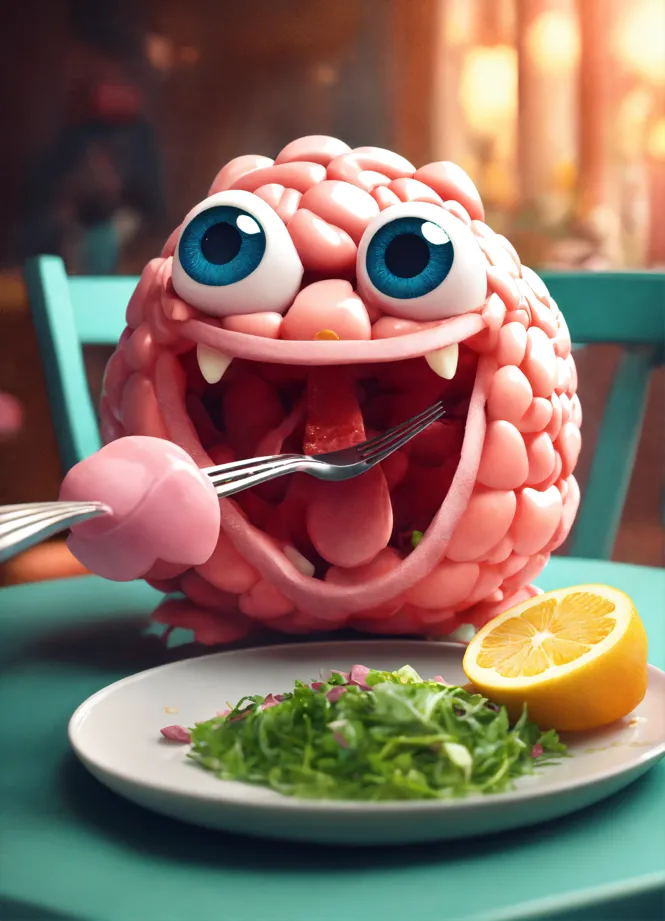Nootropics: Drugs Vs Dietary Supplements For Brain Health
페이지 정보

본문
Nootropics-additionally referred to as "cognitive enhancers," "smart drugs," "memory enhancers," or "brain boosters"-are substances intended to enhance psychological efficiency. The time period "nootropic" originally referred to a chemical that met very particular criteria: enhances memory, helps Mind Guard testimonials operate, protects the mind, and is relatively protected. No evidence exists to indicate that any dietary complement product can satisfy all (or any) of those criteria. Nootropic dietary supplements generally comprise medicine and other substances that haven't gone through the suitable regulatory framework. Many lack sufficient dependable proof to show they are both secure or effective. Some dietary supplements marketed as nootropics contain ingredients prohibited for use by Service Members. Nootropic products fall into two basic categories: dietary supplements and medicine (prescription and over-the-counter). They include substances (foods, herb, botanicals, dietary elements, pharmaceuticals) marketed to improve psychological efficiency or features-together with reminiscence, focus, motivation, concentration, and a spotlight-and for total brain well being. Dietary supplements for mind health marketed as "natural" or "herbal" nootropics may include elements reminiscent of ashwagandha, Bacopa monnieri, Ginkgo biloba, ginseng, huperzine A, omega-3 fatty acids, rhodiola, and valerian.

For example, the product NoDoz® is marketed to take care of alertness. Unapproved medication are drugs that haven't but been permitted by FDA, so we don’t know whether or not they're protected or effective. Ingesting these substances, either knowingly or unknowingly, poses a danger to any particular person. Currently, racetam drugs usually are not permitted by FDA for use within the U.S. Vinpocetine, sulbutiamine, phenibut, and huperzine A have been accredited as drugs in nations outside the U.S., so they're further examples of unapproved medication typically present in nootropic dietary supplements. FDA regulates dietary supplements in another way than prescription drugs. Dietary supplements do not require FDA approval previous to advertising and marketing, so dietary complement products may be misbranded or adulterated. FDA also has discovered some nootropic brain supplement dietary supplements to be tainted with medication or other ingredients that have not gone through the FDA regulatory pathway. Sometimes these ingredients are "hidden"-that is, they aren’t disclosed on the product label. Some nootropic dietary supplements are marketed with questionable claims.
For example, some nootropic and cognitive-enhancing dietary complement products claim they'll enhance mental performance and make your mind healthier. By regulation, nevertheless, a dietary complement can't claim to deal with or prevent any medical condition. When a dietary complement product makes such claims, based on FDA, the ingredients are thought-about "new drugs," and the product cannot be offered without going by means of FDA’s pre-market approval course of required for medication. Many shoppers believe dietary complement merchandise are "natural brain health supplement"-and subsequently safe-however this isn’t necessarily the case, particularly when they contain medication. Some ingredients in nootropics marketed as dietary supplements haven't gone through the FDA regulatory pathway to actually be utilized in dietary supplements. A few of these could actually be medication. Examples of some components to watch out for and reasons for concern are famous below. For a glance into the evidence about a number of the elements marketed for mind well being mentioned above, read the OPSS articles on ashwagandha, Bacopa monnieri, Ginkgo biloba, huperzine A, omega-3 fatty acids, phenibut, and vinpocetine.
Baker, B., & Forbes-Ewan, C. (2017). Military effectiveness of five dietary supplements purported to assist cognitive and physical performance. Butler, M., Nelson, V. A., Davila, H., Ratner, E., Fink, H. A., Hemmy, L. S., . Kane, R. L. (2017). Over-the-counter complement interventions to prevent cognitive decline, mild cognitive impairment, and clinical Alzheimer-sort dementia. Cohen, P. A. (2018). The FDA and adulterated supplements-Dereliction of obligation. JAMA Network Open, 1(6), Article e183329. Cohen, P. A., Wen, A., & Gerona, R. (2018). Prohibited stimulants in dietary supplements after enforcement action by the US Food and Drug Administration. Cohen, P. A., Zakharevich, I., & Gerona, R. (2019). Presence of piracetam in cognitive health supplement enhancement dietary supplements. Crawford, C., Boyd, C., Avula, B., Wang, Y.-H., Khan, I. A., & Deuster, P. A. (2020). A public well being subject: Dietary supplements promoted for brain health and cognitive efficiency. Crawford, C., & Deuster, P. A. (2020). Be in the know: Dietary supplements for cognitive health supplement performance. FDA. (2019). FDA takes action towards 17 corporations for illegally selling merchandise claiming to treat Alzheimer’s illness. Giurgea, C., & Salama, M. (1977). Nootropic medication. Global Council on best brain health supplement Health. 2019). The actual Deal on Brain Health Supplements: GCBH Recommendations on Vitamins, Minerals, and Other Dietary Supplements. Malykh, A. G., & Sadaie, M. R. (2010). Piracetam and piracetam-like drugs. National Center for Biotechnology Information. Rutjes, A. W. S., Denton, D. A., Di Nisio, M., Mind Guard testimonials Chong, L.-Y., Abraham, R. P., Al-Assaf, A. S., . McCleery, J. (2018). Vitamin and mineral supplementation for maintaining cognitive operate in cognitively healthy people in mid and late life. Cochrane Database of Systematic Reviews(12), Article CD011906. Tucker, J., Mind Guard testimonials Fischer, T., Upjohn, L., Mazzera, D., & Kumar, Mind Guard testimonials M. (2018). Unapproved pharmaceutical elements included in dietary supplements associated with US Food and Drug Administration warnings. JAMA Network Open, 1(6), Article e183337. U.S. Food & Drug Administration. 2018). Unproven Alzheimer’s illness products.
- 이전글Play m98 Gambling enterprise Online in Thailand 25.11.14
- 다음글Every Free Honkai: Star Rail Character At Launch, Ranked Worst To Best 25.11.14
댓글목록
등록된 댓글이 없습니다.
